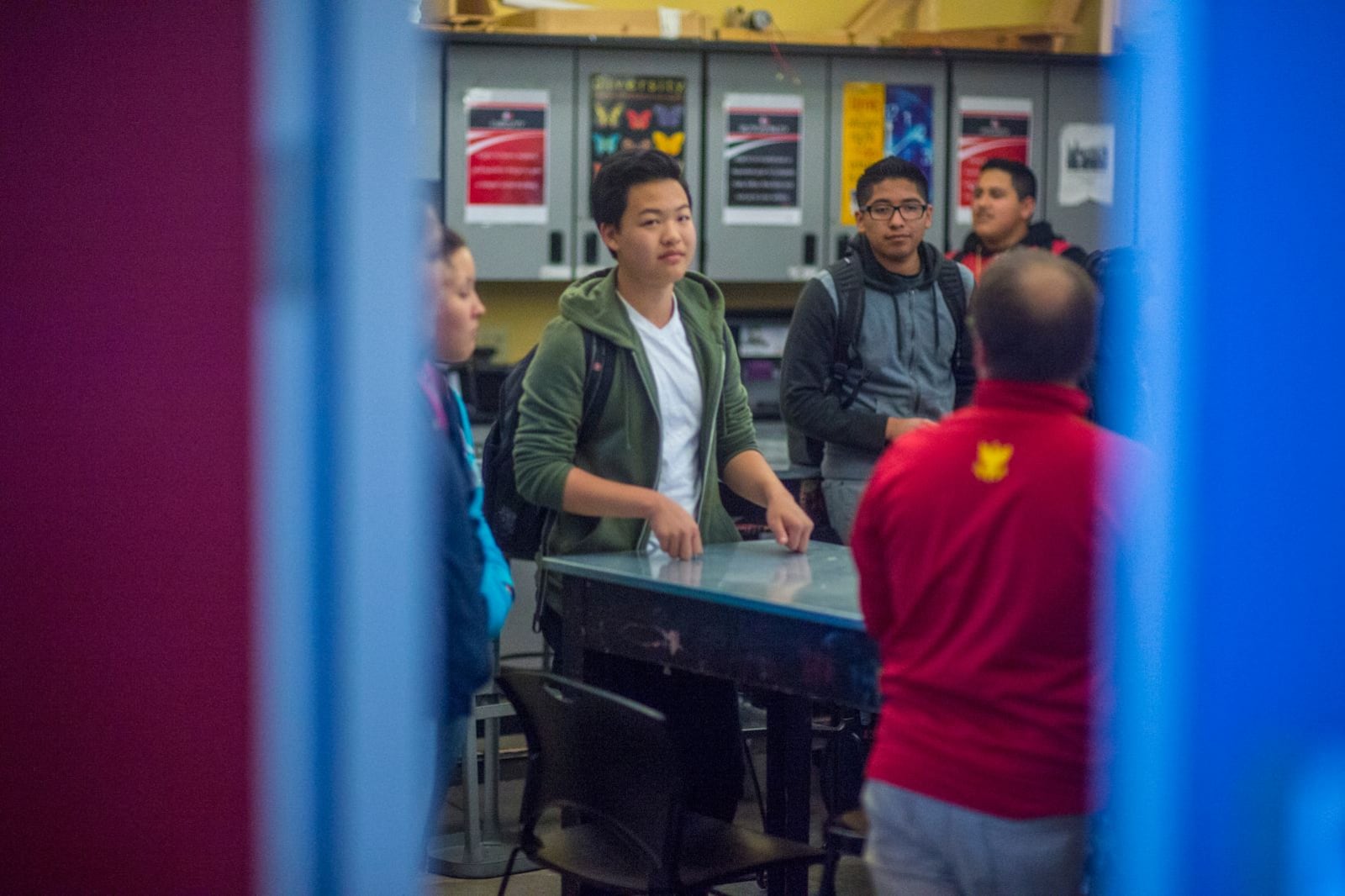Colorado lawmakers rejected a bill Thursday that would have made it easier for school boards to turn down new charter schools after more than four hours of emotional testimony, much of it from charter school families who felt the change would reduce educational opportunities.
The bill’s sponsor, state Rep. Jennifer Bacon, a Democrat who also serves on the Denver school board, said her goal was actually the opposite. Enrollment is down in many metro area school districts, leading both districts and charter networks to close schools and consolidate programs. When resources are spread among too many schools, it’s harder to provide advanced courses, school nurses, or social workers at any of them.
To better manage this change, Bacon argued, school boards need more authority to turn down charter schools and more protection against being overruled by the State Board of Education.
Two Democrats on the House Education Committee joined three Republicans in voting down the bill 5 to 4, preserving bipartisan support at the Capitol for charter schools and school choice.
Opponents said school districts shouldn’t look to shore up their financial position at the expense of students who feel better served in publicly funded but independently run charter schools.
At one point in the debate, state Rep. Timothy Geitner, a Falcon Republican, asked Bacon whether a district’s goal should be running schools or giving families what they need.
“I would say it’s both,” Bacon said. “Families need schools that meet their needs and those needs may be multifaceted. Families may want schools that have art, PE, and a nurse, and we are not able to provide that because of the very finite landscape we are in.”
Supporters of the bill also criticized some charter schools for serving fewer students with disabilities and fewer students in poverty than nearby district schools, concentrating students with more needs in district schools that now have fewer resources.
Boulder Valley School Board Vice President Kathy Gebhardt described one charter school that would have served many students from a neighboring district seeking authorization in Boulder due to its high property taxes, which districts must share with charters. While the board turned that school down for other reasons, she said school boards need more authority.
Current law doesn’t limit the reasons that school boards can turn down charter applications. If a charter school appeals a denial, the State Board of Education is supposed to consider the best interests of students and the community, but the law doesn’t say how to weigh competing interests.
Past decisions have led to a common interpretation of the law to mean that denials should be based on weaknesses in a charter school’s educational programming or financial viability, not the broader impact of opening a new school in a particular neighborhood.
House Bill 1295 would have created a presumption that school districts were acting in community interest in their charter decisions. The bill would have made it explicit that school boards can turn down a charter school if that school wouldn’t fit in the district’s strategic plan, would negatively affect district enrollment or finances, or would not adequately serve students in poverty or with disabilities.
Supporters of charter schools said those reasons were so broad that it would be almost impossible to override districts and open new schools.
Ulysses Estrada described how his school, STRIVE Prep - Green Valley Ranch in northeast Denver, deepened its commitment to racial justice and asked what would happen if such a school was seen as contradicting district goals.
Yuzo Nieto, who is working to open an arts-focused charter school, said a school that prioritized small class sizes would struggle to meet the bar in a district worried about enrollment.
As a single mother raising her child far from family support, Tina Carroll said she needed a school with particular start and end times, small class sizes, a rigorous curriculum, and a strong speech therapy program. She found the right fit in a charter school, Rocky Mountain Prep.
“Feeling empowered to select such a school that aligned with my priorities and values truly made me feel like a partner,” she said.
House Education Chair Barbara McLachlan, one of two Democrats to vote no on the bill, said Bacon had highlighted a real problem, but this bill was not the right answer.
The other Democrat, state Rep. Dafna Michaelson Jenet of Commerce City, grew emotional as she spoke about children whose needs weren’t met in district schools. One of her children is a graduate of Denver’s South High School. Another child, who is on the autism spectrum, spent more time in the principal’s office than in his classroom when he attended the neighborhood school across the street — but did far better when he went to a charter school.
“I take particular umbrage at the idea that our charter schools are not taking care of our students with disabilities,” she said. “Our public schools are not taking care of our children with disabilities.”






